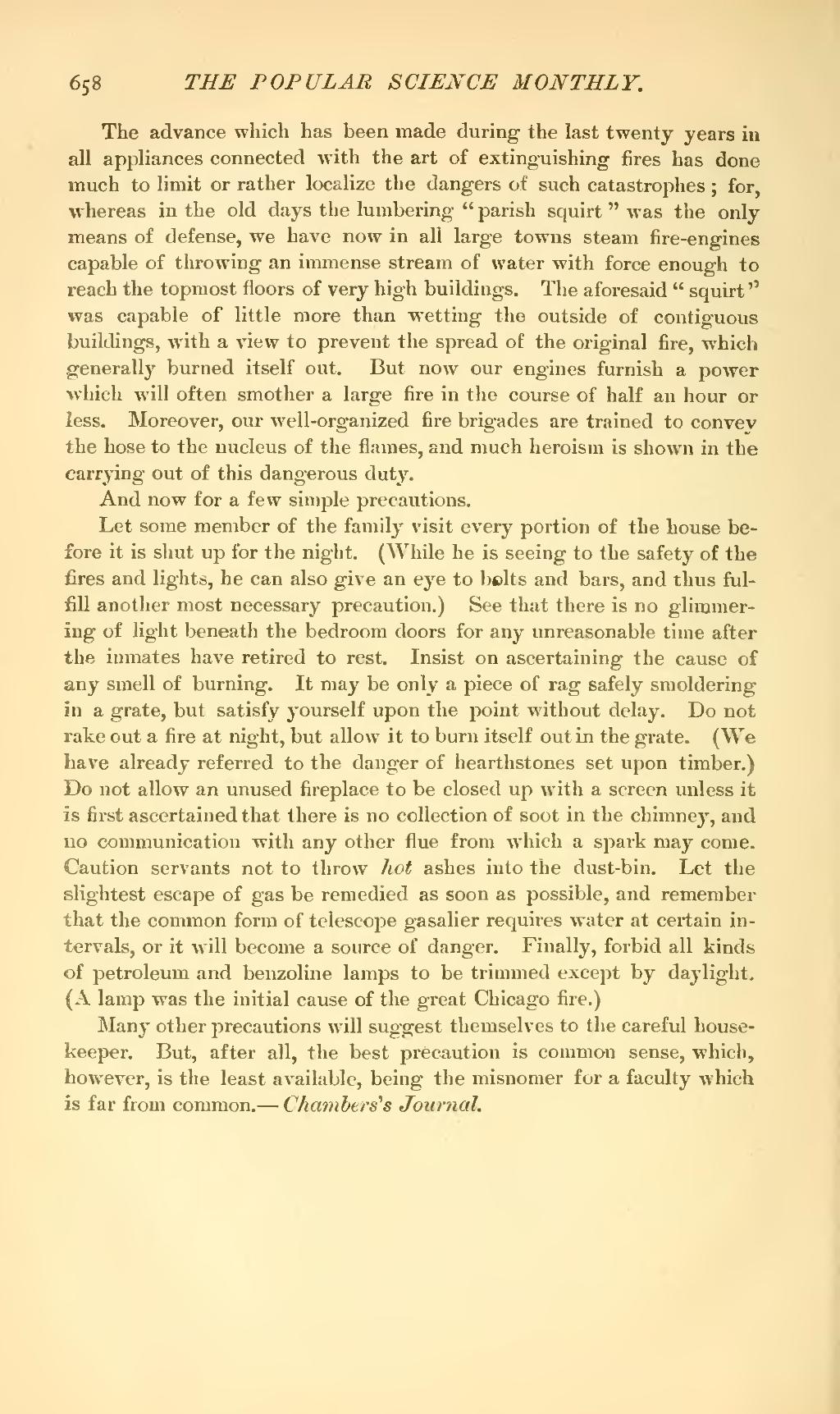The advance which has been made during the last twenty years in all appliances connected with the art of extinguishing fires has done much to limit or rather localize the dangers of such catastrophes; for, whereas in the old days the lumbering "parish squirt" was the only means of defense, we have now in all large towns steam fire-engines capable of throwing an immense stream of water with force enough to reach the topmost floors of very high buildings. The aforesaid "squirt" was capable of little more than wetting the outside of contiguous buildings, with a view to prevent the spread of the original fire, which generally burned itself out. But now our engines furnish a power which will often smother a large fire in the course of half an hour or less. Moreover, our well-organized fire brigades are trained to convey the hose to the nucleus of the flames, and much heroism is shown in the carrying out of this dangerous duty.
And now for a few simple precautions.
Let some member of the family visit every portion of the house before it is shut up for the night. (While he is seeing to the safety of the fires and lights, he can also give an eye to bolts and bars, and thus fulfill another most necessary precaution.) See that there is no glimmering of light beneath the bedroom doors for any unreasonable time after the inmates have retired to rest. Insist on ascertaining the cause of any smell of burning. It may be only a piece of rag safely smoldering in a grate, but satisfy yourself upon the point without delay. Do not rake out a fire at night, but allow it to burn itself out in the grate. (We have already referred to the danger of hearthstones set upon timber.) Do not allow an unused fireplace to be closed up with a screen unless it is first ascertained that there is no collection of soot in the chimney, and no communication with any other flue from which a spark may come. Caution servants not to throw hot ashes into the dust-bin. Let the slightest escape of gas be remedied as soon as possible, and remember that the common form of telescope gasalier requires water at certain intervals, or it will become a source of danger. Finally, forbid all kinds of petroleum and benzoline lamps to be trimmed except by daylight. (A lamp was the initial cause of the great Chicago fire.)
Many other precautions will suggest themselves to the careful housekeeper. But, after all, the best precaution is common sense, which, however, is the least available, being the misnomer for a faculty which is far from common.—Chambers's Journal.

